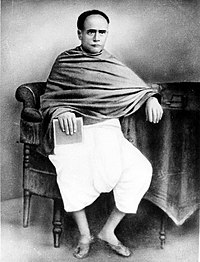Ishwar Chandra Vidyasagar and various reforms
 Educational Reform:
Educational Reform:
Iswar Chandra firmly believed that the regeneration of India was possible through modern education.
That is why Iswar Chandra vidyasagar took up an educational reforms before movement for social reforms. In matters of education Iswar Chandra vidyasagar aimed at extending the benefits of learning to common people.He reconstructed the Bengali alphabet and reformed Bengali typography into an alphabet of twelve vowels and forty consonants. He contributed significantly to Bengali and Sanskrit literature.Vidyasagar's "Barna Porichoy" is still considered a classic.
His efforts to simplify and modernize Bengali prose were significant. He also rationalized and simplified the Bengali alphabet and type, which had remained unchanged since Charles Wilkins and Panchanan Karmakar had cut the first (wooden) Bengali type in 1780.
Further, in order to liberate the minds of young learners from 'unsophisticated scholarship' Iswar Chandra urged upon them the study of Western science and philosophy.
Emancipation of Women:
Having spent his early life in village Iswar Chandra vidyasagar could realize the sorrowful condition of the womenfolk.
He rightly believed that the emancipation of women was not possible as long as they remained ignorant.
Iswar Chandra vidyasagar therefore, took upon himself the task of promoting the cause of female education.
Noticing the British Government's indifference towards female education Iswar Chandra himself started a few model schools for girls.
He also collaborated with Drinkwater Bethune in establishing the Hindu Female School near Hedua park(at present known as Bethune School and College) in 1849.
Social Reforms:
Alongside educational reform movement Iswar Chandra vidyasagar carried on with his programe of social reform.
He raised his voice of protest against the child marriage and sent a petition to the British Govt, urging it to legalize widow remarriage with support from people like Akshay Kumar Dutta,
His efforts were rewarded when Hindu Widow Remarriage Act was passed in 1856 by the then Governor-General Lord Canning( Widow Remarriage Act XV of 1856 )
By this Act the remarriage of a widow was recognised as legal, Vidyasagar, however, was not successful in getting child-marriage legally prohibited.
Comments
Post a Comment